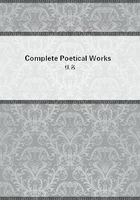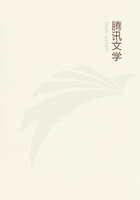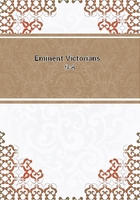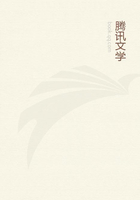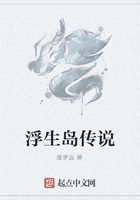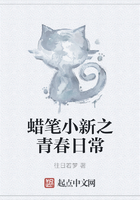Proof--So long as a man is affected by the image of anything, he will regard that thing as present, even though it be non-existent (II. xvii. and Cor.), he will not conceive it as past or future, except in so far as its image is joined to the image of time past or future (II. xliv. note). Wherefore the image of a thing, regarded in itself alone, is identical, whether it be referred to time past, time future, or time present; that is (II. xvi. Cor.), the disposition or emotion of the body is identical, whether the image be of a thing past or future. Q.E.D.
*****Note I.--I call a thing past or future, according as we either have been or shall be affected thereby. For instance, according as we have seen it, or are about to see it, according as it has recreated us, or will recreate us, according as it has harmed us, or will harm us. For, as we thus conceive it, we affirm its existence; that is, the body is affected by no emotion which excludes the existence of the thing, and therefore (II. xvii.) the body is affected by the image of the thing, in the same way as if the thing were actually present. However, as it generally happens that those, who have had many experiences, vacillate, so long as they regard a thing as future or past, and are usually in doubt about its issue (II. xliv. note); it follows that the emotions which arise from similar images of things are not so constant, but are generally disturbed by the images of other things, until men become assured of the issue.
*****Note II.--From what has just been said, we understand what is meant by the terms Hope, Fear, Confidence, Despair, Joy, and Disappointment. "Hope" is nothing else but "an inconstant pleasure, arising from the image of something future or past, whereof we do not yet know the issue." "Fear," on the other hand, is "an inconstant pain also arising from the image of something concerning which we are in doubt." If the element of doubt be removed from these emotions, hope becomes "Confidence" and fear becomes "Despair."
In other words, "Pleasure or Pain arising from the image of something concerning which we have hoped or feared." Again, "Joy" is "Pleasure arising from the image of something past whereof we have doubted the issue." "Disappointment" is "the Pain opposed to Joy."
XIX. He who conceives that the object of his love is destroyed will feel pain; if he conceives that it is preserved he will feel pleasure.
Proof--The mind, as far as possible, endeavours to conceive those things which increase or help the body's power of activity (III. xii.); in other words (III. xii. note), those things which it loves. But conception is helped by those things which postulate the existence of a thing, and contrariwise is hindered by those which exclude the existence of a thing (II. xvii.); therefore the images of things, which postulate the existence of an object of love, help the mind's endeavour to conceive the object of love, in other words (III. xi. note), affect the mind pleasurably; contrariwise those things, which exclude the existence of an object of love, hinder the aforesaid mental endeavour; in other words, affect the mind painfully. He, therefore, who conceives that the object of his love is destroyed will feel pain, &c. Q.E.D.
XX. He who conceives that the object of his hate is destroyed will also feel pleasure.
Proof--The mind (III. xiii.) endeavours to conceive those things, which exclude the existence of things whereby the body's power of activity is diminished or constrained; that is (III. xiii. note), it endeavours to conceive such things as exclude the existence of what it hates; therefore the image of a thing, which excludes the existence of what the mind hates, helps the aforesaid mental effort, in other words (III. xi. note), affects the mind pleasurably. Thus he who conceives that the object of his hate is destroyed will feel pleasure. Q.E.D.
XXI. He who conceives, that the object of his love is affected pleasurably or painfully, will himself be affected pleasurably or painfully; and the one or the other emotion will be greater or less in the lover according as it is greater or less in the thing loved.
Proof--The images of things (as we showed in III. xix.) which postulate the existence of the object of love, help the mind's endeavour to conceive the said object. But pleasure postulates the existence of something feeling pleasure, so much the more in proportion as the emotion of pleasure is greater; for it is (III. xi. note) a transition to a greater perfection; therefore the image of pleasure in the object of love helps the mental endeavour of the lover; that is, it affects the lover pleasurably, and so much the more, in proportion as this emotion may have been greater in the object of love. This was our first point.
Further, in so far as a thing is affected with pain, it is to that extent destroyed, the extent being in proportion to the amount of pain (III. xi. note); therefore (III. xix.) he who conceives, that the object of his love is affected painfully, will himself be affected painfully, in proportion as the said emotion is greater or less in the object of love. Q.E.D.
XXII. If we conceive that anything pleasurably affects some object of our love, we shall be affected with love towards that thing. Contrariwise, if we conceive that it affects an object of our love painfully, we shall be affected with hatred towards it.
Proof--He, who affects pleasurably or painfully the object of our love, affects us also pleasurably or painfully--that is, if we conceive the loved object as affected with the said pleasure or pain (III. xxi.). But this pleasure or pain is postulated to come to us accompanied by the idea of an external cause; therefore (III. xiii. note), if we conceive that anyone affects an object of our love pleasurably or painfully, we shall be affected with love or hatred towards him. Q.E.D.

